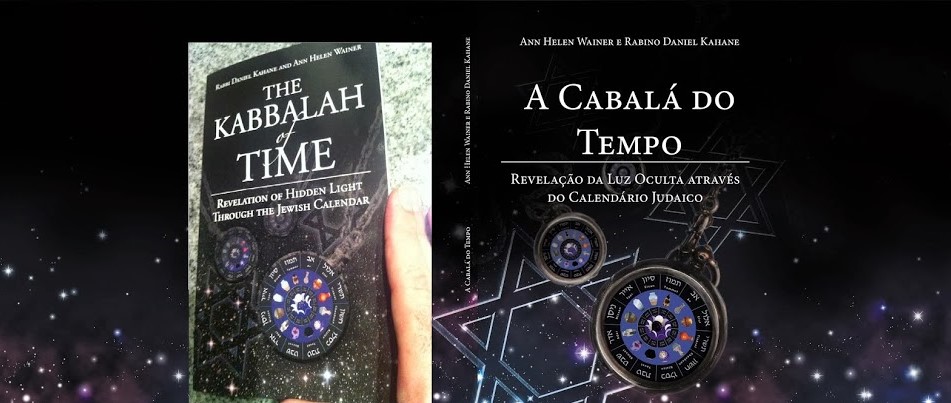HAAZINU: And die on the mountain upon which you are
climbing and be gathered to your people, just as your brother Aaron died on
Mount Hor and was gathered to his people. (Deuteronomy 32:50)
HAFTORAH: Therefore I will give thanks to You, O'
Lord, among the nations, and to your name I will sing praises. (II Samuel
22:50)
PIRKEI AVOT QUALITY: Who Properly Undestands What He
Learns
PROPHET: Devorah[1]
LEVITICAL CITY: Mahanaim
We now come
to week fifty, the week of Chai Elul, which marks the birth of the
Baal Shem Tov and the Alter Rebbe, as well as the yahrzeit of the
Maharal of Prague. In Haazinu, Moshe is told to “die on the mountain upon
which you are climbing,” and be gathered to his people, just as Aaron his
brother died on Mount Hor and was gathered to his people. We are told that tzadikim never
die, and that even in Heaven they continue to climb from level to level. We are
also told that when Moshe saw his brother pass away, he desired a death like
his. Hashem granted Moshe’s wish. Even at Moshe’s death, we see the importance
of brotherly love. There is also a repetition and continuation, somewhat
similar to the repetition and continuation we see when comparing the life of
the Baal Shem Tov with the life of the Alter Rebbe. Both of their teachings and
the Tanya itself is based on the works of the Maharal of Prague. This is also
appropriate for the week of Chai Elul, because when a tzadik dies, he’s
actually more “alive” then before, and impacts the world much more.
In the Haftarah’s verse
for this week, King David speaks of giving thanks to G-d, “among the nations”
and singing praises to His name. The idea of giving thanks and praising G-d is
ultimately what life is all about. Chassidism is about realizing Hashkachah
Pratis (see Yud Tes Kislev) that everything comes from Hashem and
that everything is for the good. Furthermore, it is appropriate that this be
the message of Chai Elul, because it was also on this date that the Baal Shem
Tov revealed himself to the world, “among the nations.”
The quality
needed to acquire the Torah for this week is “who properly understands what
(s)he learns/hears.” This is also the message of Chai Elul, in which the
Alter Rebbe continued the tradition he received from his teacher the Magid, who
in turn had received from the Baal Shem Tov. The Alter Rebbe pondered what he
learned from his teachers and organized it in the Tanya.[2] Similarly,
his knowledge of the revealed part of the Torah, was organized in his Shulchan
Aruch. The Baal Shem Tov himself said of the Alter Rebbe that he would bring
two lights (Shnei Or) into the world, in the realm of the hidden aspects of the
Torah as well as the revealed one.
This week’s
prophetess is Devorah. There is a parallel between ants and bees (soldierlike,
part of something greater; also they both have a queen). Like the Ant in Book
1, Devorah also suffered from the sin of pride, which caused her to lose her
prophecy momentarily. Overall, however, Devorah was extremely modest and
humble, and that is what made her worthy of becoming a prophet. About her it is
said, “The wisdom of a woman built her home.”[3] The word
used here is Chochmah, which is the sefirah related to this
week.
Devorah also
represents the quality of this week, in that as a judge, it was essential that
she ponder and properly understand what she heard. We also see this quality in
the very song that she sang in the Book of Judges. In it, she ponders over
Israel’s situation at the time, the reactions of different tribes to the war,
Yael’s heroic actions, how the Jewish people asked her to sing, and the fate of
Sisera and his mother. The song also contains a “back and forth” between her
and the Jewish people, in which she hears what the Jewish people say to her
(“Arise Devorah… arise and sing a song”) and she responds.
The
levitical city for the fiftieth week is Mahanaim. Mahanaim is a very special
place. It is where Jacob met angels of G-d, who received him into the Land of
Israel, after Lavan had departed and returned to his place. (Genesis, Ch. 32)
It was from there that Jacob sent messengers to Esav.
Mahanaim was
also the place to which King David fled from his son Absalom. It was there that
he and his army were given provisions by Barzillai the Gileadite, and where the
tide of the his son’s rebellion turned in David’s favor. Among these provisions
was honey (perhaps related to the bee, Devorah). (Shmuel II, Chapter 17)
On Chai
Elul we enter the final twelve days of repentance before Rosh Hashanah. We
are given the necessary “spiritual provisions” necessary for repentance. Each
of the twelve days represents repentance for a different month, and Chai Elul
itself corresponds to Tishrei.
[1] This week also appears related to our matriarch Leah and to
Rebbetzin Devorah Leah, daughter of the Alter Rebbe.
[2] “Ha'mech'aven et shmu'ato [ ] means ‘think over what
you've heard.’ Create a mental filing cabinet.” http://www.aish.com/sp/48w/48942836.html
[3]http://www.toraschaimdallas.org/2008/06/due-to-her-modesty-she-remains-inconspicuous/; http://jwa.org/encyclopedia/article/deborah-2-midrash-and-aggadah

No comments:
Post a Comment